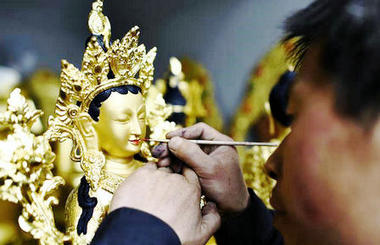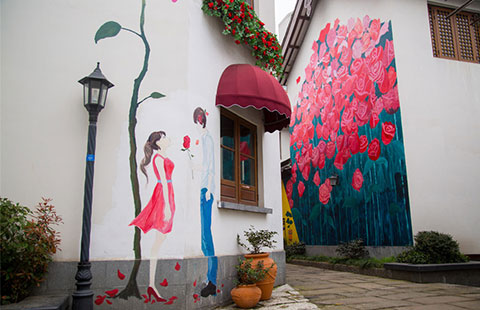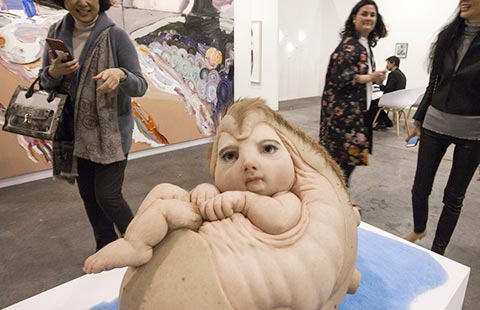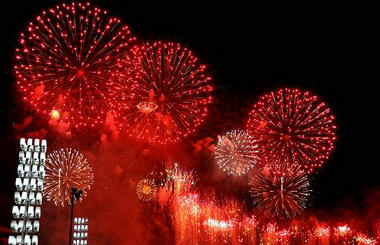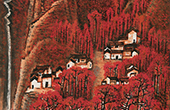Peking Opera finds a colorful new canvas
By Chen Nan ( China Daily ) Updated: 2016-02-03 08:24:37
Dressed in lavish costumes, makeup and exquisite headdresses, two actresses from China National Peking Opera Company, Fu Jia and Zhou Jing, perform extracts from two well-known Peking Opera works, The Drunken Concubine (Gui Fei Zui Jiu) and The Jewelry Purse (Suo Lin Nang) at the National Center for the Performing Arts in Beijing on a recent afternoon.
Sitting in the audience is Ding Liren, who is not just enjoying the performances but also sketching on his notebook.
"I love the look of Peking Opera actors, the movements and the emotions expressed. It is art," says the 86-year-old artist. It's a habit, which Ding has cultivated since he was 6 years old.
Known for his paintings of Peking Opera characters, Ding was in Beijing to open an exhibition, titled Rhythm of Brush and Ink, Exhibition of Chinese Theatric Figure Paintings, which is on at the NCPA. It runs till March 15.
With nearly 80 paintings from eight Chinese artists, including Ma Shulin, Su Hongsheng and Zhang Peicheng, the exhibition portrays classic Peking Opera figures, such as the Monkey King, the main character in the Chinese classical novel Journey to the West, and Mu Guiying, a legendary female warrior from the Song Dynasty (AD 960-1279).
Born in Jiaojiang, Taizhou city of East China's Zhejiang province, Ding comes from a family of intellectuals, who liked inviting local Peking Opera troupes to perform at their home. That's how his initial fascination with Peking Opera started.
As Ding recalls, the actors from Peking Opera troupes made friends with his family. Ding liked sneaking backstage, to observe the preparations for their performances and he also toured with the troupe.
"Onstage, they could be emperors and princesses, but behind the curtain they sipped tea and chatted with fellow actors. I was very interested in their lives," says Ding.
|
|
|
|
|
|
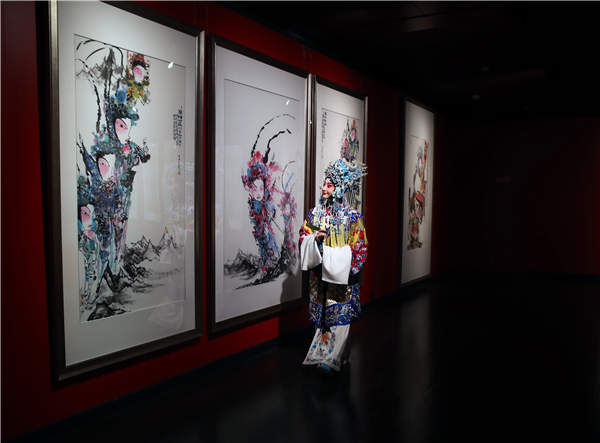
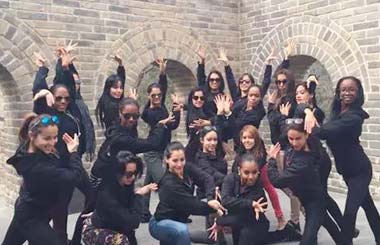

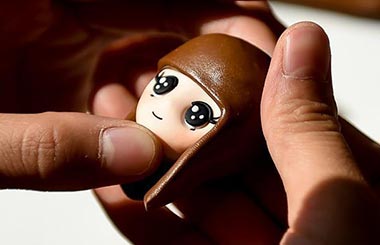
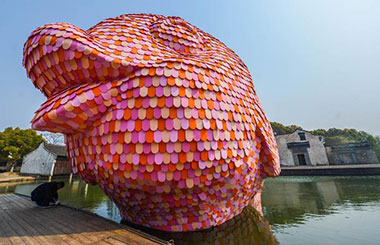
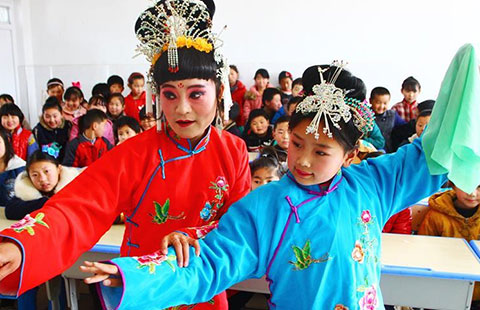
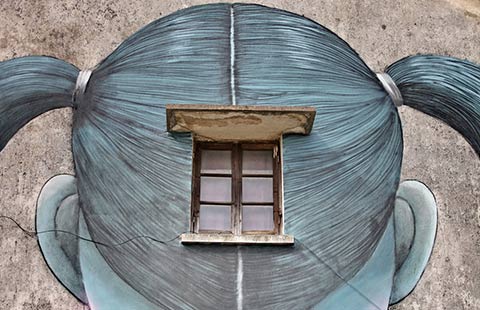
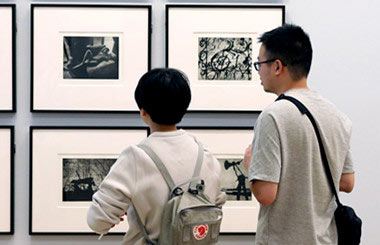
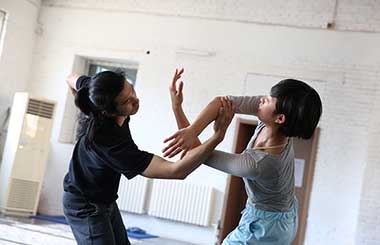
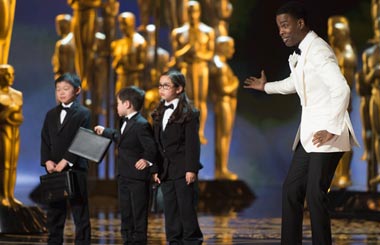

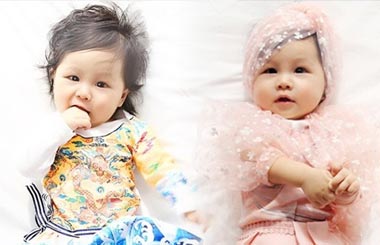

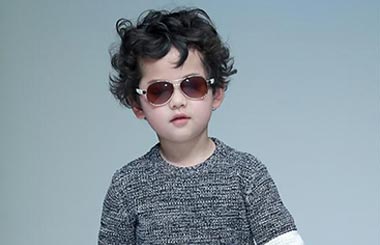
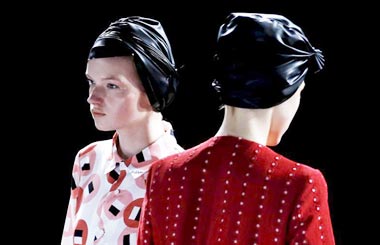

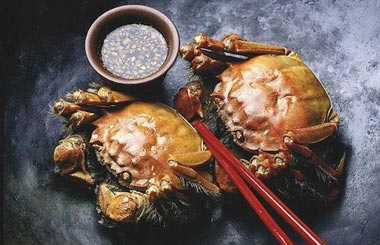
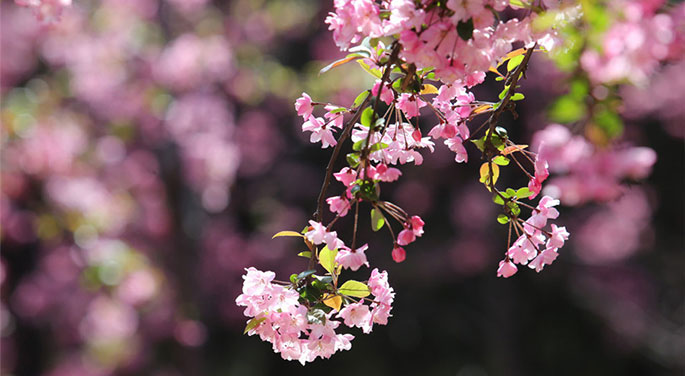

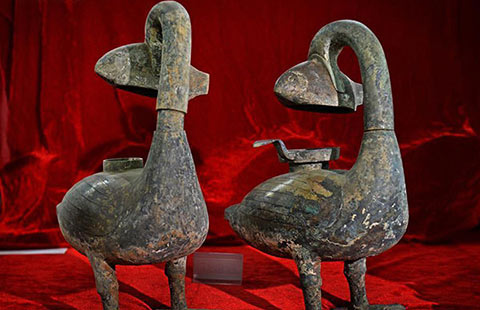

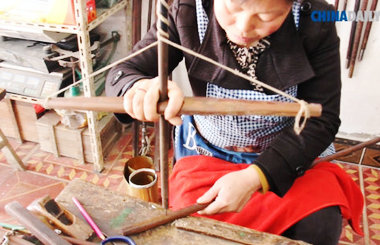


 Raymond Zhou:
Raymond Zhou: Pauline D Loh:
Pauline D Loh: Hot Pot
Hot Pot Eco China
Eco China China Dream
China Dream China Face
China Face
